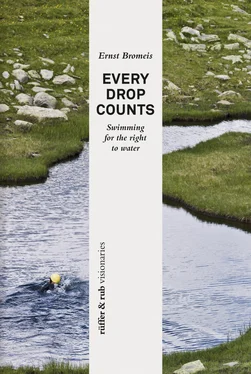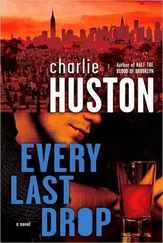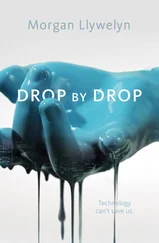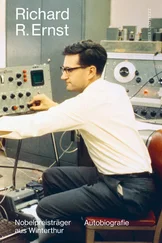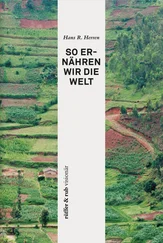This may apply to even our partner and to our dearest friends. This lack of disclosure may mean that they are not aware of the places and deeds that we planned on visiting and doing. Our Western, reality-driven society often has a hard time with dreams and yearnings. This is because they are irrational and diffuse—and are based on feelings. As such, they do not belong to the world of adults, to a world ruled by calculations.
Artists enjoy one great privilege. They are allowed to pursue their dreams. The rest of us are enjoined to function properly and to dispense with daydreaming. A number of the people sitting on the church’s benches would have been embarrassed by the funeral service’s divulging of the deceased’s wishes for a free, independent and adventurous life. Sorrow belongs at such services—and dreams and yearning do not.
I am writing these lines in my office, which is but a stone’s throw away from the Church of St. John in the Swiss village of Davos Platz. The office is home to “Das blaue Wunder”. This is my company. Its name means “the blue miracle”. Since my office is located so close to the church, it’s not surprising that we get to hear the tidings tolled by its bells: of funerals, weddings, baptisms and new years. The rhythm of the tolling reminds me from time to time of how quickly time—my time on earth— is flowing past.
Why are we so afraid to realize our dreams and yearnings? After musing on that question for a long time, I resolved one day to face this fear. This book tells the result of that. It tells you the story of how I realized my dreams and yearnings: by swimming 200 lakes in Switzerland’s canton of Graubünden, the entire length of the Rhine—the 1247 kilometers it traverses from its source to the North Sea—and, as well, other bodies of water. And by founding “the blue miracle”.
This realizing of my dream commenced eight years ago, which is when I quit my “normal” job in order to spend all my time and energy in the realization of my water-related projects. These were motivated by the innate beauty of water, something that becomes highly apparent when observing it and the earth as a whole from space. The world and the life it contains are built of and upon water. It is thus truly the “blue miracle”. Our Earth-side, close-up vantage point enables us to perceive the fragility of this miracle—and the state of our global civilization.
We perceive the inequality of apportionment of fortune and misfortune and of wealth and poverty. We perceive how over-abundance and paucity go hand-in-hand in a world in which nature preserves and environmental catastrophes are allowed to exist side-by-side, in which water runs free—or is owned by private interests. The resolution of these dichotomies requires the world’s society’s implementation of solutions. We are not talking about a responsibility for tomorrow or the day after—but for today, for right now.
My involvement in protecting water stems from the sum total of my life’s experiences and the philosophy to which it has given rise: that each kind of life has a right to live— and thus a right to water. This maxim may sound banal. It is fact anything but that. It is, moreover, difficult to implement. Calling for this implementation is the easy part. The true challenge is realizing this in an ocean of comprised of individual interests, with this applying to both the local and global levels. This book answers the question of how we as individuals can help bring about the world’s handling of its precious resource—water—in a sensible way.
For the last eight years, while fighting for the protection of water, I have also been experiencing—through swimming— the other aspect of water, which is its palpable beauty. This experience is enhanced by the poetry of self-induced motion. This book is thus about both aspects of the world’s water—the challenge of protecting it and the enjoyment of interacting with it—and how these clash with and impact upon each other.
My time on this earth is limited. My devotion to the “blue miracle” is my way of imparting meaning to this time. This meaning will be what the church’s bells will be tolling when they sound for me and the life that I so purposefully lived.
“You are naive”— a passion is born
My devotion to water was the product of neither a revelation nor a near-death experience. Nor did I experience a fall from a horse on my way to Damascus, one that caused Saul to become Paul. 1The fact that I became a swimmer with a penchant for expeditions and, subsequently, an “ambassador for water” is, rather, the end-product of a series of minor events. These built up to the point that the dam holding back my will had to break.
Some find what I do and how I do it to be logical. Some— those who have known me for a long time— say “That’s got you written all over it, Ernst!” The latter include those who studied physical education with me at university, during which time I completed a degree in the training of high-performance athletes. The latter also comprise my colleagues at the K-11 school in Zuoz, Switzerland, at which I taught.
Many from a third group have gotten to “know” me through the media’s reports on my first expedition in the canton of Graubünden. As I have had repeated occasion to learn, this group has had a hard time grasping why I have chosen to take this course of action. Their “explanations” include that I am having a midlife crisis, that I am dropping out of society, that I am on an ego trip or that I am a publicity hound.
A woman came up to me after I had given a lecture, and said, in all frankness: “You are naive! Why are you doing this?” Her tone was patronizing and accusatory. Its implicit question was “how can anyone give up everything near and dear for a vision or for a mission?”
As is probably the case with all of us, the seeds of this revolutionary change in my life were planted in my childhood. I well remember an important moment in my life. It took place at a small brook, which ran through the vicinity of Ardez, a village in Switzerland’s region of Lower Engadine. This was where I grew up, where my father was the teacher at the village’s school. My father had two great hobbies: making music and keeping bees.
All throughout my childhood, in August and the end of the summer holidays, it was my job to help my father harvest the honey produced by his bees. My father and I would lift the honeycombs from the boxes containing the bees. We would then knock the remaining bees off the honeycombs. This would send the bees tumbling into the containers designed to catch them. Our next job was to place each of the honeycombs in their designated places in the large-sized box, which was capacious enough to keep them separate from each other.
The center of our beekeeping was a hut that stood all by itself on a meadow located near Ardez. The hut was surrounded by bushes, flowers and deciduous trees. In my mind, I recall the honey harvest’s as always having taken place on sunny days whose warmth would turn the interior of the hut into an oven. My father’s philosophy was to not harvest all of the honey, but, rather, to leave several full-length honeycombs for the bees. This enabled them to survive the winter in their sanctuary of their box. My father was very close to his bees, even though there were thousands of them, all completely anonymous, each lacking a name. Despite this, my father was involved with each and every one of his “lady employees”. I believe that my father placed great importance on being a member in good standing of a large cycle of activity. This “membership” required his respecting and caring for “his” bees in ways—such as the leaving them enough honey to thrive mentioned above—showing his gratitude for and appreciation of them and their work. My father was neither plunderer nor exploiter. He was, rather, a “coexister”, one cultivating a reciprocity of utility and protection, of living and let live.
Читать дальше
